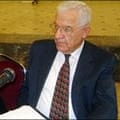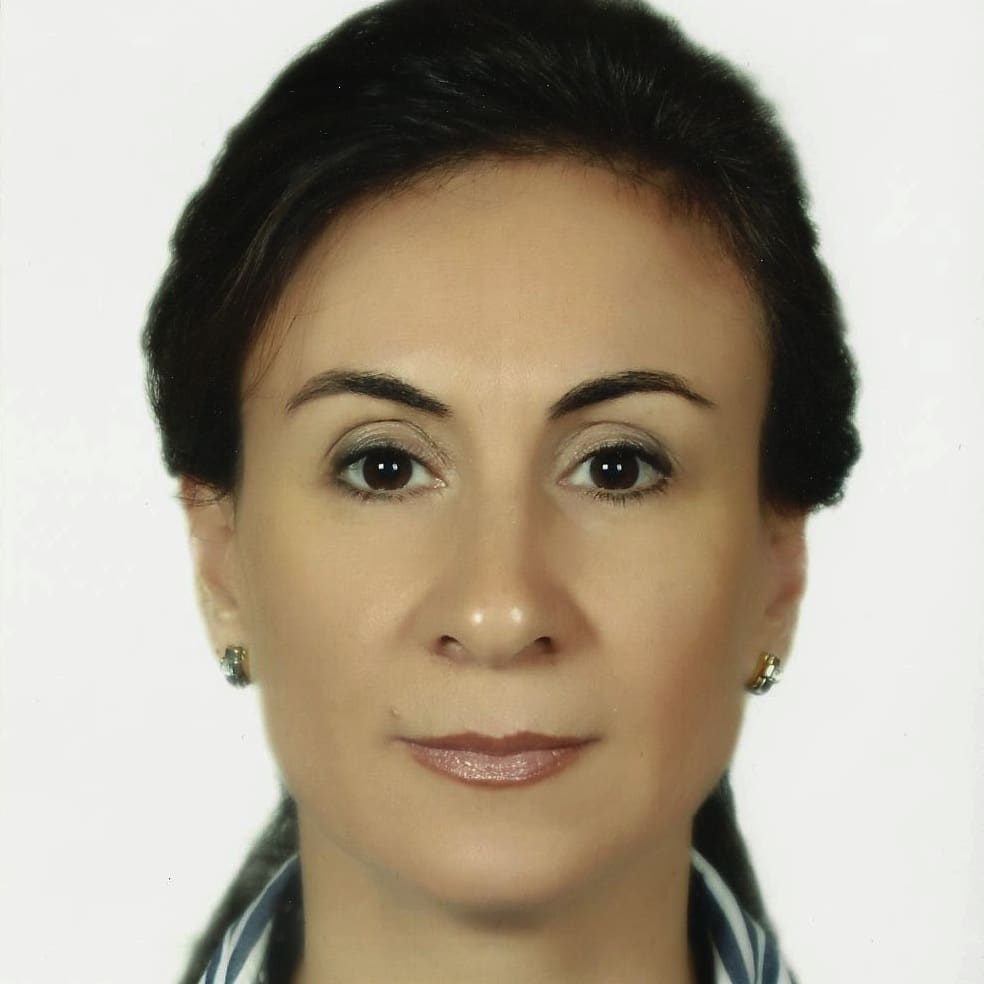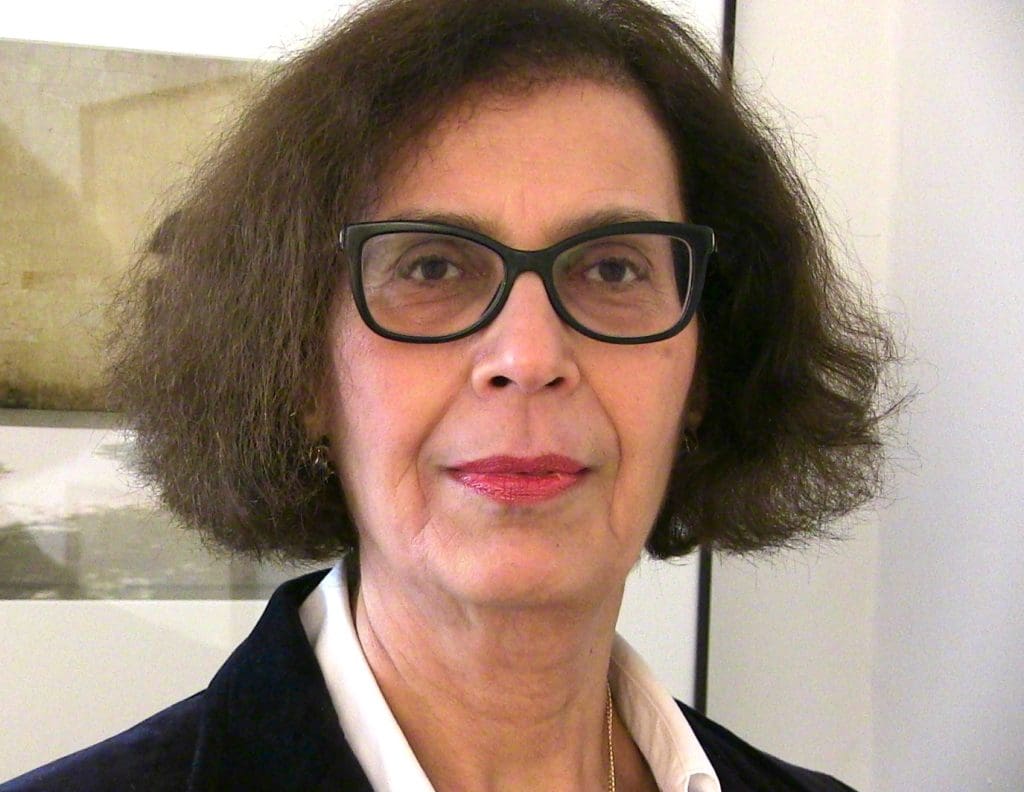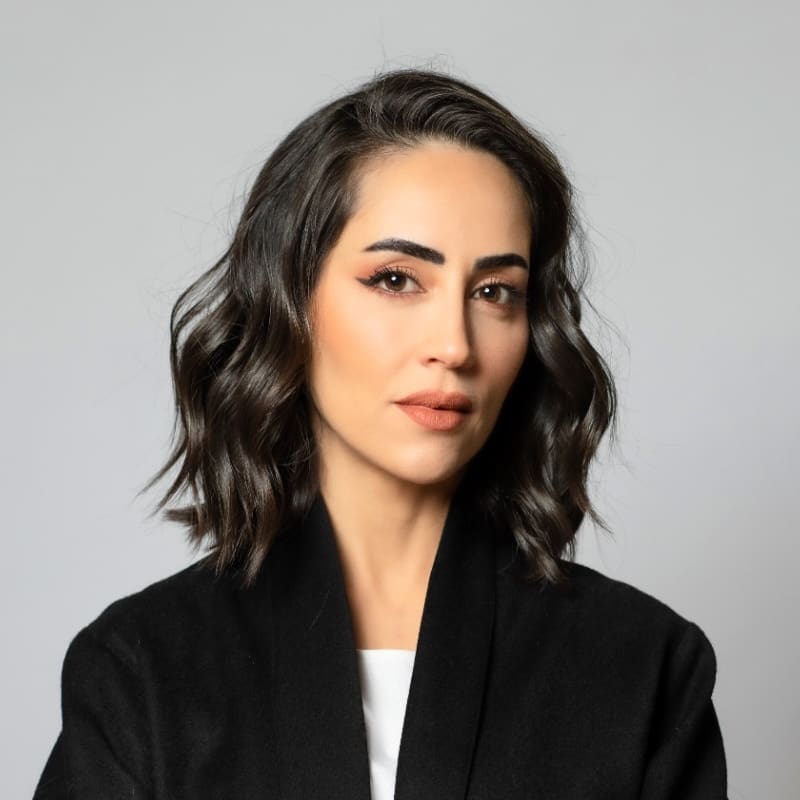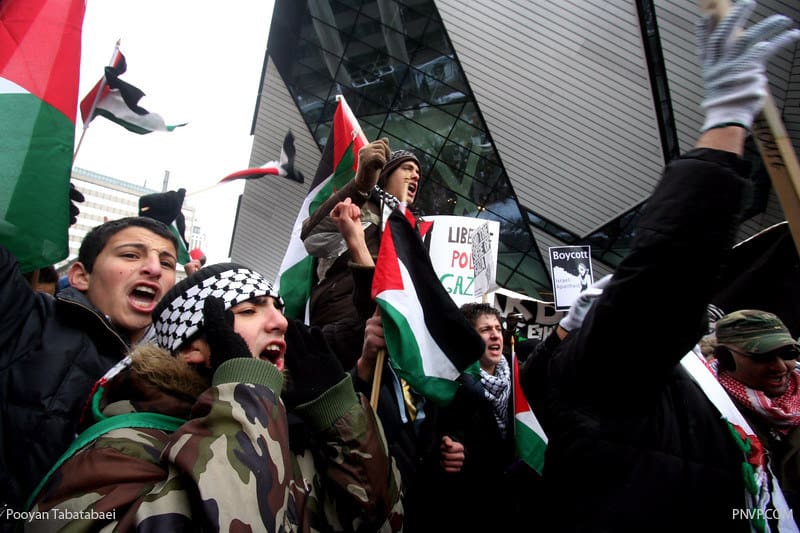
Overview
This Al-Shabaka roundtable examines the effectiveness of different forms of resistance in achieving Palestinian self-determination. In a series of meetings, Al-Shabaka policy advisors discussed the new forms of civil struggle, the role of boycotts, the use of legal strategies, the problems of armed resistance, and the failure of negotiations as a strategy as well as the implications of plans to declare a state. The attendees included: Amjad Atallah, Sam Bahour, Rana Barakat, Mary Nazzal-Batayneh, Oroub el-Abed, Nadia Hijab, Victor Kashkoush, Anis Kassim, Osamah Khalil, and Mouin Rabbani.
Clarify the Goal
All forms of resistance can be used intelligently and with purpose. What’s missing today is a clearly defined Palestinian endgame that enables an assessment of which form of resistance will work best. If the aim is to impact negotiations for a two-state solution, then that will involve one set of tools, whereas if a one state solution is the goal then a completely different set of tools may be needed.
There is a need for a public debate on the objectives of the Palestinian national movement choosing from a spectrum of goals. The first is the one the Palestinian Authority (PA) has worked toward: Two ethnic states in which the right of return would largely be abandoned. The second would be to see whether there is a two state model that allows for the right of return. The third would be to argue for a bi-national state in which a Palestinian national representation would be merged with Israel in some form of consociationalism. The fourth would be to argue for a one-state model, which would be a post-nationalist model if it is to include Jews and Palestinians equally. All are potentially viable except for the first one. The question is whether there is an emotive convergence among the majority of Palestinians world-wide around the goals – especially if they believe that they can be empowered to choose the direction of the movement.
The Potential and Limitations of Boycott, Divestment, and Sanctions
Point At the moment, the only game in town appears to be the boycott, divestment and sanctions (BDS) – but, instead of BDS being seen as a tool to mobilize people toward a clear goal, it has itself become the endgame for many people: Serving the BDS agenda becomes the goal, a misleading notion that will boomerang in future.
Counterpoint Yet the BDS call of 2005 came up with three very clear goals that cover all segments of the Palestinian people whether under occupation, in Israel, or in the Diaspora: freedom, equality, and right to return. (See the full text and list of signatories of the 2005 Call). By so doing, it provides a definition of an endgame that moves beyond the sterile discussion of one state versus two states. In some ways the importance of the goals is greater than BDS as a strategy because they provide clear direction towards an endgame when people no longer know precisely what they’re fighting for. In addition, over 170 associations, unions and groups have signed on to the BDS call, whether they had thought everything through or not. It is frustrating that the BDS call is not “marketed” in that way.
Point A potential problem is that the three goals are framed in a way that there is hardly a Palestinian that would not sign on to them, even the most politically compromised. So although they are accurately framed, they constitute principles rather than an endgame. And another challenge relates to the signatories of the BDS Call. Someone looking deeper into it could ask: “Who exactly is your civil society? How does it work? Do they have elections? Are they representative or not?” So the BDS platform needs to be “upgraded” in a way, or renewed.
Counterpoint A clarification is necessary here: It’s important to realize that the 2005 document is a right-based approach. In other words, as a tool or strategy BDS is purposefully not about a solution: It’s about advocacy, tactics and strategies, but it was never supposed to be about an end game. It is also important to understand the potential of the BDS National Committee (BNC) that has since been established by some of the signatories of the BDS Call, not as an alternative to the Palestine Liberation Organization (PLO), but as a popular mechanism. The structure and functioning of the BNC are not yet fully clear even to those within it. Can it be become a fully functioning democratic structure that provides a popular mechanism? (See Al-Shabaka policybrief on BDS).
Point The question is whether since we’ve become so intensely involved in BDS that we have left ourselves in a situation where we haven’t really focused on how to actually reach that end game.
Counterpoint If the BDS goals establish the principles of a national movement, that’s a good thing. A physically dispersed people needs such red lines as a way to know when to stop resistance and when to carry on. However, each of the three goals may need a different set of tools for resistance. Ending the occupation may be one track with multiple means of resistance; how the refugees need to mobilize is perhaps a completely different one. Too many times Palestinians have tried to have a generic strategy of resistance for all three goals during different phases of their history. That hasn’t worked because none of them had enough effort to be sustainable, whether it was armed resistance or negotiations used as a form of resistance, if it can be called that.
In a sense, the major success of Palestinian resistance throughout Palestinian history has been not losing. If you think about the history of colonialism, it is a profound victory.
Given the extent to which Palestinians have been fragmented or broken little cantons, the ability to form a united front is very important – even if that united front means having a simple, common statement of principles and not getting bogged down in endgames.
The Effectiveness of Legal Resistance
Some Palestinian groups, such as the Palestine Legal Aid Fund, are involved with “legal resistance,” which is similar to BDS in the sense that it can be used as a part of a wider advocacy effort. Arguably, this form of resistance could reach a wider audience than BDS because you’re speaking not in terms of boycott, but rather of human rights and rule of law – labels that are more readily acceptable to an international audience. Whether it is the settlements, the annexation of Jerusalem, refugees, or war crimes, the idea is to finally use the law in an effective manner internationally and challenge Israeli violations in every jurisdiction available.
The 2004 International Court of Justice (ICJ) Advisory Opinion was very clear regarding third party obligations, and this is a major opportunity for legal action when you look at what the international community is doing vis-à-vis Israel. For example, a case drawing on the ICJ opinion was brought against the government of the United Kingdom challenging specific actions and the overall relationship, including the fourfold increase since 2004 in the number of arms export licenses the UK provided Israel. After the case was launched, they undertook a full review of all arms export licenses, and placed partial sanctions on the component parts of some weapons. The UK example can be replicated in almost all jurisdictions because it does not require a country to have a universal jurisdiction law.
Is Armed Resistance Over?
Point Historically, the two planks of the Palestinian national movement have focused on armed resistance coupled with negotiations, with negotiations rising and armed resistance falling. So is armed resistance dead? Can it still be used a viable option, and if not, what are the implications? And how do you engage with the groups who still believe that armed resistance is the only way? This leads to other questions, for example: How can armed resistance be meshed with legal resistance, given that the Palestinian struggle is about implementing international law? Although there is a right of armed resistance by peoples under occupation, this cannot be done in a way that violates international law, e.g. through discriminate attacks on civilians.
In any case, not many groups still believe in armed resistance as an option, other than Islamic Jihad in Gaza and some of the PLO-splinter groups based in Lebanon. Hamas has tended to adopt the PLO’s strategy, which is to say it’s willing to negotiate but without putting down the gun – although they’ve now also been forced to moderate that position.
Counterpoint One can argue that the armed struggle was never a serious strategy, and that it never will be. The attacks of the past 40 or 50 years were “targeted” violence and no more. Whether in the case of Hamas at present or the PLO factions of the 1970s and 1980s, armed resistance was never a full-scale strategy per se. The question is: How do we get the traditional PLO factions involved in any resistance program, armed or otherwise. They are missing in action. All the political factions, including Fatah, are resting on their laurels. Looking at the Arab revolutions, it is unlikely that there will sustainable change without an organized capacity on the ground. The Palestinians had that organizational capacity, but it was sold off for the Oslo process. It is necessary to focus on how to organize for the long run with or without the traditional or Oslo-generated factions.
Are Negotiations a Form of Resistance?
Are negotiations the only option available? And what of the moves by the PA to get countries to recognize a Palestinian state and take that to the United Nations? The fact is that, even within the occupied Palestinian territories, the PA strategy has not been discussed in a meaningful way. There has been no effort to work at any levels other than diplomatic to even try to mobilize people to serve the PA agenda. Representatives of the international solidarity movement who want to know how they can help by supporting the PA’s plan do not get any answers. That’s how distant the PA is from the people and the solidarity movement.
If the US or if the UN recognize the state, then the forms of resistance available will seriously change – and not for the better. For example, Israeli soldiers might be replaced with PA soldiers trained by Jordan and Israel, or by a NATO force. Any discussion of the form of resistance should take into account these different scenarios.
Then there’s the model of what people are calling “Fayyadism,” a sort of a neo-liberal agenda that is trying to create counter-facts on the ground and planning for statehood in September 2011. This is not necessarily the product of negotiations in the traditional PLO/PA way, but it is a different kind of negotiations. There is a need to take a hard look at the neo-liberal model, including the building of the new city of Rawabi.
Resisting Fragmentation & Non-Representation
It is important to address the fragmentation of the Palestinian political system and the marginalisation of growing numbers of Palestinian constituencies, both political and geographic. Different Palestinian communities are dealing with different issues. In Jordan and Lebanon there are Palestinians refugees who say they would rather stay where they are if they cannot go back to the town they came from, and who list the many problems they face that are not related to the right of return. In the West Bank and in Gaza, Oslo has created special interests. In the United States, Palestinian communities say they want to define their own issues. Oslo led to the disintegration of the PLO and the Palestinian people. The challenge is to revive the body politic and its relevance.
Point As we think about forms of resistance, it is worth looking at the stage of transition we are in compared to where the national movement was in 1964, when Gamal Abdel Nasser was behind the original PLO and populated it with the old notable families from Jerusalem who were largely responsible for the collapse of the Palestinian national movement by 1948. Thereafter, new form of resistance started to coalesce around armed struggle and Arab nationalism. Are we now moving to a different paradigm of resistance where the old forms of leadership are falling away, some having been co-opted by the PA and others no longer sure of what they stand for? Is there a place at the table for them?
Counterpoint But can the traditional political factions be abandoned? The elections for student council at Birzeit University, for example, show how deeply entrenched these political parties are – Fatah, Hamas, even the Popular Front. This is also the case in the refugee camps in Lebanon and in Jordan. The PFLP probably has its biggest base in some of the camps in Lebanon. These parties might be dead politically, but they are not entirely dead and this is not something that can be ignored locally.
Point There is still value today in using the term PLO as we know it historically, in lieu of the PA, of saying that ending the occupation, equal rights for Palestinians in Israel, and the rights of refugees are the agenda. It is almost as a way of taking the three BDS goals and creating a political governance structure to reflect them. In the face of a unilateral move towards statehood with no governing body, no checks and balances in the system, bringing up the PLO is not saying that it may be the organizing body for the future, but rather that it is the only legitimate one today, even though it also doesn’t have a proper governing body.
In fact, one form of resistance needs to be against the non-participation of the Palestinian people in the process of determining their future. There is no functioning Palestinian Legislative Council, no Palestinian National Council – indeed, no representation of the people in any way. Palestinians need a governing body to discuss strategies, tools and forms of resistance.
Counterpoint The elephant in the room that is never addressed head on is the fact that the PA is leading a people that is not following. Shouldn’t Palestinians be resisting the PA as well? Or should they just continue as if the PA does not exist – they go their way and we go ours? The ICJ judgment is an example of one of the most outstanding judgments in support of a dispossessed people, but also of a resounding failure, because nothing was done to follow it up. Indeed the PA has actively has worked against legal efforts to follow up on the ICJ judgment, and against so many other legal initiatives such as the Goldstone Report, or recourse to the International Criminal Court. (See the Al-Shabaka policybrief on the iCJ ruling).
How to challenge the PA is a very important question: At some point the Palestinians will have to say bluntly that this leadership does not represent us. There will be costs, including exclusion from Palestine and further fragmentation, but the question really is what are the tools that can be used to challenge the PA, and when one should use them.
Point There are two different aspects to the PA. There is the PA that employs hundreds of thousands of people in the West Bank and to a lesser extent in Gaza, which is extremely important and poses an obstacle to challengers. And then there is the PA that represents the occupation more than it does the Palestinians. So what does it mean to fight against the PA and the PLO – in particular, what does it mean to do so at the international level and in law. Does the PLO have the authority under international law to sign away individual rights like the right of return and to relieve Israel of claims – particularly if the terms of the leadership have expired under PLO or PA law?
Resisting Donor Roles
The issue of the PA and how to address it is clearly linked to the question of the role of the donor community. The way donors interact with the Palestinian people is one area that can be tackled in a critical way, both from the perspective of Palestinian rights under international law and also in terms of holding the PA accountable for donors’ actions.
Donors in the OPT behave like cowboys. They don’t work under anyone’s framework other than their own. And they have been able to co-opt large segments of civil society because Palestinians need to put food on the table at the end of day. This removes social mobilization as one of the tools of resistance. Donors are a soft spot that can be addressed in terms of moving the PA in a more progressive direction. The trend for the donor community to give aid instead of taking the correct political positions must be resisted.
Tackling Diplomatic Representation
Point Diplomatic status has been bestowed on the PLO and the PA by both the UN and the Arab League after the Palestinians fought for recognition of the PLO as their sole, legitimate representative. This representation function is now being used and manipulated against the very people supposedly represented. So what can or should be done? It is useful to contrast to the role of the PLO and PA with the African National Congress, and its role as a coordinator of the anti-apartheid movement. The ANC allowed the movement to be diffuse but also interacted with it to ensure that there was a common set of goals.
Counterpoint Regarding the ANC, a more accurate analogy that a lot of people are using is between the PA and the Bantustan governments. The difficulty in challenging the international recognition of the PLO in the form of diplomatic missions is that it is not yet clear whether you would be calling a spade a spade or shooting yourself in the foot.
Point The diplomatic role of the PLO may be a good entry point to try to drive a wedge between the PLO and the PA. The heads of diplomatic missions are supposed to be representatives of the PLO and not of the PA and in theory are accountable to the Palestinian people. No one is really clear on the actual status of PLO missions around the world and it may be worth asking some pointed questions. For example, how could a more active diplomatic corps really exert legal resistance?
Counterpoint Mahmoud Abbas’s title is the Chairman of the Executive Committee of the PLO, and so they could argue that it is within their rights to appoint and dismiss these officials. And of course when you talk to any of these different ambassadors, they claim they are representing the Palestinian people.
But perhaps there is a way to do this by looking at their policies and arguing that they are shirking their duty and their responsibilities to the Palestinian people. You could argue, for instance, that since 2007, Riyad Mansour, the ambassador to the UN, has made it quite clear in his actions related to Gaza that he is not the ambassador for the Palestinian people, that he is the ambassador for the PA.
This really gets back to the question of the role of the PLO. What was it historically and what is it now? And what are the implications? There is a lot of confusion among Palestinians about the status of their political bodies; there is no map of who’s who and who has legitimacy according to the constitution.
Point Although Abbas carries both titles, if one were to examine the day-to-day structure, some serious questions could be raised. For example, do the PLO ambassadors report to Riyad al-Maliki, the PA’s “foreign minister”? Where do they get their instructions? Who evaluates their performance? Where does the funding come from? In theory, the PA “foreign minister” should have nothing to do with the PLO representative.
It is worth noting that embassy missions in different places work differently. The one in Paris certainly does not work like the one in Athens or the one in DC now. The missions overseas are perhaps the only remaining piece of the PLO that is still alive, that is still visible to the Palestinian people, so they may be an entry point into reclaiming the PLO. It is worth checking even though protocol-wise everything may look proper on paper.
The simple reality is that if Palestinians want to go forward there has to be an understanding of how things are today. There is insufficient knowledge of how the current so-called system of governance works. There is a need to deconstruct the PLO and see where the overlap with the PA exists, which will help better understand how to address the PA.












